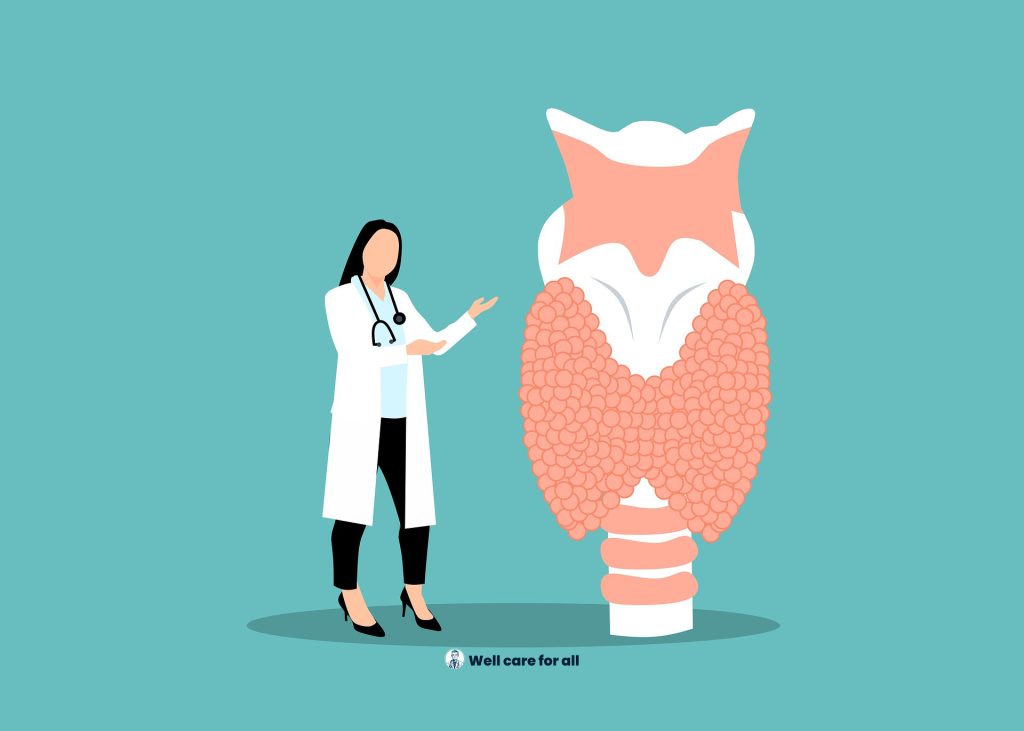
If you have hypothyroidism, you already know how your thyroid affects your energy levels, metabolism, and overall well-being. You might not realize that what you eat and when can significantly impact your feelings. This article explores the best Diet for hypothyroidism, focusing on whole, nutrient-dense foods that nourish your thyroid and support hormone balance.
Whether you’ve just been diagnosed or want to fine-tune your lifestyle, this practical guide can help you make informed, thyroid-friendly food choices.
What Is Hypothyroidism and Why Does Diet Matter?
Hypothyroidism occurs when the thyroid gland loses the ability to produce thyroid hormone. Since the thyroid is the primary regulator of metabolism, a slowdown in its function can lead to fatigue, weight gain, brain fog, cold intolerance, and more.
While medication like levothyroxine is often necessary, Diet significantly impacts managing symptoms, supporting thyroid function, and improving energy. The right, nutritious foods can help reduce inflammation, support nutrient absorption, and increase hormone production.
Top Nutrients That Support Thyroid Health
Let’s start with the nutritional building blocks your thyroid depends on:
Iodine
Iodine is essential for thyroid hormone production. Without enough iodine, the thyroid cannot produce triiodothyronine (T3) and thyroxine (T4), the hormones that regulate your metabolism.
Sources of iodine:
- Seaweed (kelp, nori)
- Iodized salt (in moderation)
- Dairy products
- Eggs
- Fish and shellfish
Caution: Too much iodine can worsen hypothyroidism. Always consult your doctor before taking iodine supplements.
Selenium
Selenium helps convert T4 into the more active T3 form and protects the thyroid gland from oxidative stress.
Selenium-rich foods:
- Brazil nuts (just 1–2 per day is enough)
- Sunflower seeds
- Tuna
- Turkey
- Chicken
- Mushrooms
Zinc
Zinc plays a significant role in proper thyroid hormone synthesis and immune system function.
Top zinc sources:
- Oysters
- Beef and lamb
- Chickpeas
- Lentils
- Pumpkin seeds
Best Foods to Eat with Hypothyroidism
Here’s what your thyroid wants you to put on your plate:
Lean Proteins
Protein helps regulate metabolism and supports muscle mass, especially since hypothyroidism can slow metabolic function.
Great options include:
- Chicken and turkey breast
- Salmon and sardines (also excellent sources of omega-3s)
- Eggs
- Tofu and tempeh
- Lentils and beans
Vegetables and Fruits
Fiber-rich fruits and vegetables support digestion, prevent constipation (a common hypothyroidism symptom), and provide antioxidants.
Best choices:
- Leafy greens like spinach and kale (lightly cooked to reduce goitrogens)
- Berries, oranges, and apples
- Sweet potatoes
- Carrots and bell peppers
- Zucchini
Whole Grains (in moderation)
Whole grains provide B vitamins and fiber but should be balanced if you have gluten sensitivity or Hashimoto’s thyroiditis.
Try:
- Quinoa
- Oats
- Brown rice
- Buckwheat
Foods to Avoid or Limit with Hypothyroidism
Soy Products
Soy contains isoflavones, which, in large quantities, may interfere with the absorption of thyroid hormones.
Tip: Wait 3–4 hours after taking your thyroid medication before eating soy.
Goitrogenic Vegetables (Raw)
Cruciferous vegetables (Brussels sprouts, broccoli, cauliflower) can affect raw iodine uptake. The good news is that cooking them significantly reduces this effect.
Gluten
Many people with Hashimoto’s disease (an autoimmune cause of hypothyroidism) are sensitive to gluten. Gluten can trigger immune responses and increase inflammation.
Consider testing for gluten sensitivity or trying a gluten-free trial under medical supervision.
Sugary and Processed Foods
Hypothyroidism slows down metabolism, making it easier to gain weight. Processed snacks and sugary foods provide empty calories and can worsen fatigue and brain fog.
Smart Eating Habits for Hypothyroid Support
Time Your Medication Right
Always take thyroid medication on an empty stomach, ideally 30–60 minutes before breakfast. Avoid calcium, iron, coffee, and fiber supplements within 3–4 hours after taking your pill, as they may interfere with absorption.
Eat Smaller, Balanced Meals
To avoid fatigue and blood sugar crashes, opt for 3–5 smaller meals that combine protein, healthy fats, and complex carbs.
Hydrate Well
Proper hydration supports metabolism and helps flush out toxins. Aim for 8–10 glasses of water daily.
Sample One-Day Hypothyroidism-Friendly Meal Plan
Breakfast:
- Scrambled eggs with spinach (cooked)
- Sweet potato hash
- Herbal tea
Snack:
- A few Brazil nuts and a banana
Lunch:
- Grilled salmon salad with quinoa, arugula, bell peppers, and olive oil dressing
Snack:
- Hummus with carrot sticks
Dinner:
- Stir-fry tofu with cooked broccoli, zucchini, and brown rice
Dessert (optional):
- A small bowl of berries with unsweetened coconut yogurt
Supplements: Yes or No?
While whole foods are the best way to get your nutrients, some individuals with hypothyroidism may benefit from:
- Selenium supplements (in measured doses)
- Vitamin D if levels are low
- B12 (especially if you’re vegan or vegetarian)
- Probiotics to improve gut health, which can impact thyroid function
Always consult your healthcare provider before starting any supplement regimen.
FAQs About Diet for Hypothyroidism
Q: Can I lose weight with hypothyroidism?
A: Yes, but it may require a bit more effort. Focus on whole, unprocessed foods, exercise regularly, manage stress, and ensure your thyroid levels are well-controlled.
Q: Is coffee bad for hypothyroidism?
A: Coffee isn’t harmful in moderation but can interfere with thyroid medication if taken too soon. Wait at least 30–60 minutes after your meds before drinking coffee.
Q: Should I avoid dairy?
A: Not necessarily, unless you have a sensitivity. Some individuals with autoimmune thyroid issues feel better about avoiding dairy, but others tolerate it well.
Q: Are there superfoods for thyroid health?
A: Yes! Try seaweed (in moderation), Brazil nuts, wild-caught salmon, and leafy greens (cooked). These nutrient-dense foods offer targeted thyroid support.
Q: Can diet reverse hypothyroidism?
A: Diet can’t wholly reverse hypothyroidism, especially if it’s autoimmune. However, when paired with appropriate medical treatment, it can significantly reduce symptoms, improve energy, and enhance overall well-being.
Conclusion
Living with hypothyroidism doesn’t mean giving up on feeling good. Choosing the right foods and being intentional with your eating habits can boost energy, support metabolism, and feel more in control of your health journey. This isn’t about perfection—it’s about small, consistent choices that fuel your thyroid and your life. Start with one change today. Maybe it’s cooking those greens or reaching for a handful of selenium-rich nuts. Every bite matters.



